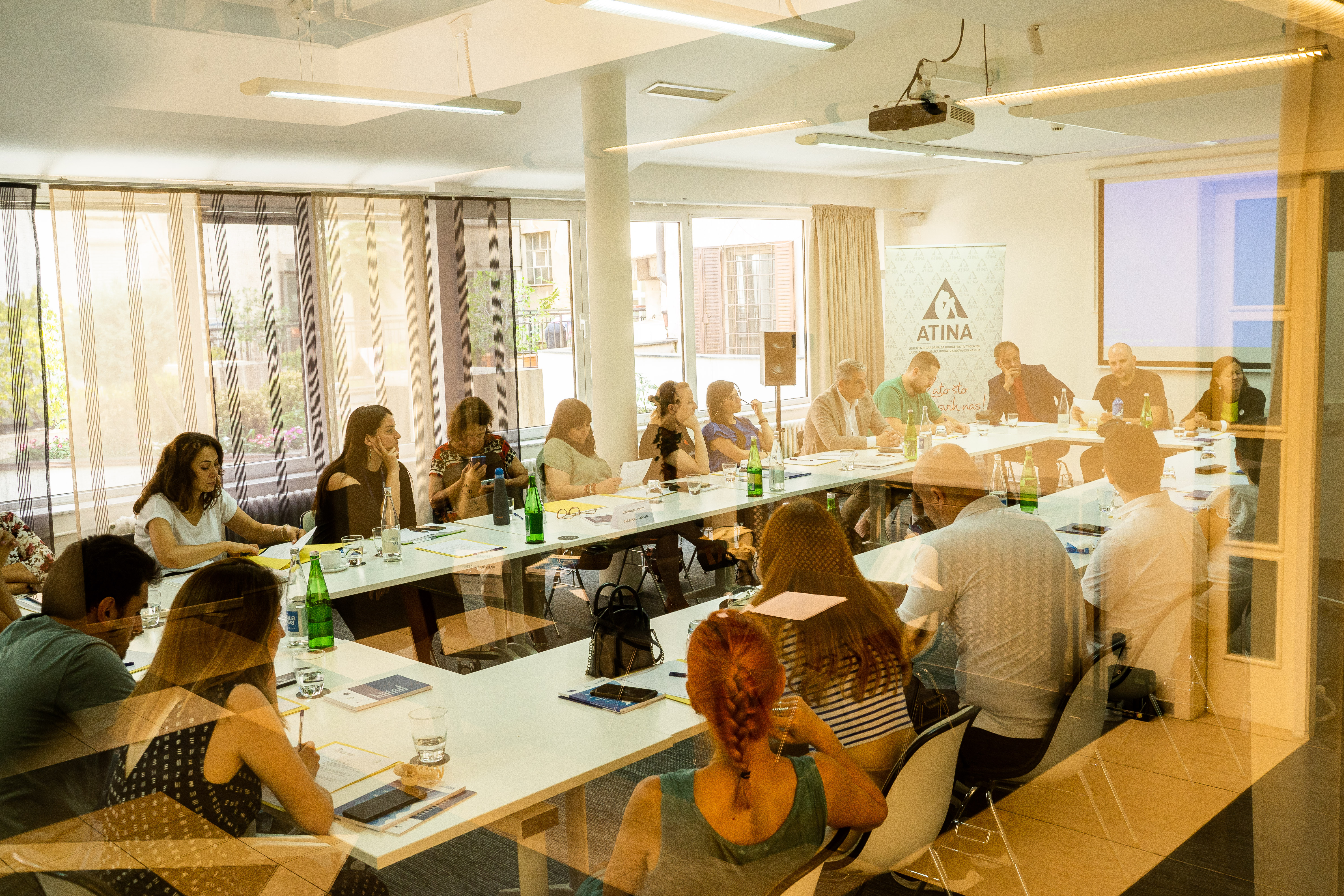Hotline: +381 61 63 84 071
Training for Improving Competencies of Professionals in Belgrade

Training for Improving Competencies of Professionals in Belgrade
As part of the project supported by the British Embassy in Belgrade titled "Improving Referral Mechanisms and Services for Refugees and Migrants Victims of Gender-Based Violence and Human Trafficking in Serbia," the first training session "Practitioners in Combating Human Trafficking and Gender-Based Violence with a Special Focus on Migration" was held in Belgrade on July 13 and 14, 2023.
The main goal of the training was to enhance the knowledge and competencies of professionals in recognising potential victims of human trafficking and gender-based violence among refugee and migrant populations. The outcome is local organisations and institutions network to improve the identification, referral, and service provision system for (potential) victims.
The training gathered 22 participants, including 15 women and seven men, from various local and international organisations and institutions. Representatives were from the International Organization for Migration, the Center for Crisis Policy and Response, ADRA, IDEAS, the Danish Refugee Council, the Jesuit Refugee Service, UNHCR, as well as relevant state institutions, including the Commissariat for Refugees and Migration of the Republic of Serbia, Higher Public Prosecutor's Office in Belgrade, Palilula and Obrenovac Health Centers, and the Center for Social Work Obrenovac.
Guest lecturers at the training were experts from various fields, including Gorjana Mirčić Čaluković from the Higher Public Prosecutor's Office in Belgrade, Jelena Šurlan from the Commissariat for Refugees and Migration of the Republic of Serbia, Goran Todorović, a retired police colonel, Slobodan Savić from the Institute of Forensic Medicine "Milovan Milovanović," and Đorđe Dogandžić from the Center for Protection of Victims of Human Trafficking.
During the two-day training, participants enhanced their knowledge of recognising and reporting potential victims of human trafficking and gender-based violence through lectures and interactive exercises. Topics such as femicide, smuggling, and specific challenges in working with migrant and refugee populations were also discussed.
The evaluation conducted at the end of the training showed that participants significantly improved their knowledge and skills. Recommendations were made to strengthen the capacities of civil society organisations for timely response, more precise standard operating procedures, continuous knowledge improvement of professionals, and the responsibility of healthcare workers in reporting suspicious indicators.
This training represents a significant step towards better identification and protection of victims of human trafficking and gender-based violence in migrant and refugee populations while also strengthening cooperation between local organisations, state institutions, and international partners.












 FACEBOOK
FACEBOOK TWITTER
TWITTER YOUTUBE
YOUTUBE